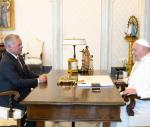You are here
When Turkey goes to war
Sep 06,2016 - Last updated at Sep 06,2016
In less than two weeks Turkish-backed Syrian rebels, supported by tanks, artillery and air force, were able to clear Daesh militants from all villages and towns under their control along the borders with Turkey.
Operation Euphrates Shield, as Ankara calls it, is now entering a new phase: one that aims at safeguarding the borders with Syria and checking the advance of Syrian Kurdish militias.
Turkish Prime Minister Binali Yildirim announced on Monday that a 91-kilometre border stretch with Syria, from Azaz to Jarablus, was now entirely secured.
The success of the operation, led by Free Syrian Army (FSA) fighters, means that Daesh lost vital supply routes through Turkey to its bases in Syria and Iraq.
It is an important achievement that was mainly prompted by recent gains against Daesh made by People’s Protection Units (YPG) and Syrian Democratic Forces (SDF) in northern Syria.
But the Turkish land incursion in Syria, the biggest since the eruption of the Syrian crisis five years ago, has other objectives as well.
It aims at pushing YPG/SDF, which Ankara considers terrorist groups allied with the PKK, east of the Euphrates.
Yildirim said Turkey will never allow the formation of an artificial state, i.e., Kurdish, in the north of Syria.
The YPG/SDF forces, backed by the United States, are spearheading the attack against Daesh in northern Syria.
The US claimed that Kurdish groups have retreated to the east, but Turkey remains doubtful.
At one point, FSA fighters clashed with YPG/SDF forces near Manbij.
The Kurds described Turkey’s land incursion as an “invasion” and vowed to confront it.
Another Ankara objective is to create a safe zone between Azaz and Jarablus to house Syrian refugees there.
This idea was not welcomed by Washington when it was first proposed, more than a year ago. But following last July’s failed coup attempt and the ensuing deterioration in US-Turkish relations, due to Washington’s refusal to hand over self-exiled cleric Fethullah Gulen, that position could change.
US Vice President Joe Biden visited Ankara last month and expressed support for the Turkish intervention in northern Syria.
He wanted to placate Turkey when he warned Syria’s Kurds to withdraw to the east of the Euphrates River and assured the Turks that there will be “no [Kurdish] corridor. Period. No separate entity on the border”.
But the question is, if the latest Turkish intervention in Syria dislodged Daesh from key positions along the borders with Turkey so quickly, why has Ankara waited for so long to step in?
Turkey opted not to join the US-led coalition against Daesh until late last year and even when it did, it was still accused of failing to control its border with Syria, through which thousands of foreign jihadists are thought to have crossed to join Daesh and other rebel groups.
Until recently, Daesh maintained strategic supply routes across the border with Turkey and there are allegations that it was able to sell oil through Turkish intermediaries.
But at least two important developments took place that forced President Recep Tayyip Erdogan to change his stance.
One was the series of military successes by Syrian Kurdish militias in capturing Daesh-held territory in northern Syria, close to the borders with Turkey.
The outcome of the battle for Manbij last month raised red flags in Ankara as the Kurdish militias were now occupying territory beyond their traditional positions in northeastern Syria, areas populated by Arabs, Turkmen and other ethnicities.
The second reason was that Daesh began targeting Turkish towns and villages; in the last deadly attack, in Gaziantep last month, at least 50 were killed and 90 injured.
The Turkish military operation in northern Syria, justified under the Adana Treaty of 1998, was condemned by the Damascus regime and is being viewed with apprehension by Tehran and Moscow.
There are no clues to how long the army will stay and how deep it will push. But the intervention has guaranteed Erdogan an important place among the major players in the Syrian crisis.
If the Turkish army stays and sets up a safe zone inside Syria, it could turn out to be the biggest military operation by Turkey outside its borders since the invasion of northern Cyprus in 1974.
The Turkish intervention has also boosted the role of the FSA, which has been waning over the past year.
FSA now controls important territory and is restoring its importance opposite other jihadist coalitions that have become key players especially in Idlib, Aleppo and the Damascus countryside.
But the incursion presents another challenge to the Obama administration, which is seeking to restore relations with its Turkish ally while managing the assault against Daesh in Syria through the YPG/SDF militias: trying to avoid a situation where it has to choose between the two.
For Turkey, which is also fighting the PKK’s rebellion in the south, derailing Kurdish political ambitions is a strategic priority.
Washington will have to find a way to maintain both alliances as it seeks to reach a new understanding with Moscow over Syria in the coming few weeks.
The writer is a journalist and political commentator based in Amman.













